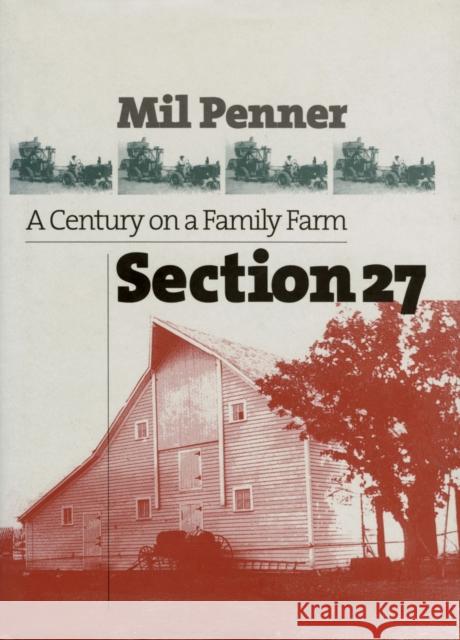Section 27: A Century on a Family Farm » książka
topmenu
Section 27: A Century on a Family Farm
ISBN-13: 9780700611966 / Angielski / Twarda / 2002 / 232 str.
Smack in the middle of Kansas, Section 27 in McPherson County has been occupied by the Penner family since 1874. Although few of the area's residents have direct ties to the past, Mil Penner still farms the land that his family has worked for over 125 years. His account of daily life on a Mennonite family farm near Inman, Kansas, retells a universal story of the American heartland sharpened by personal accounts of one family's enduring relationship to the land.
In this collection of brief, evocative vignettes, Penner traces the influence of pioneer roots on the present generation as he chronicles the transformation of the land from untouched prairie to productive farm. As a boy, young Mil rubbed shoulders with the very pioneers who tamed the prairies and he now draws on those recollections and memories passed on by his father to make the past come alive. Through Penner's accounts, readers will discover a miniature universe through descriptions of breaking sod and harvesting, Mennonite customs and religion, education in a one-room school, and the evolution of farm equipment from horse-drawn to engine-powered plows. The story he tells is virtually a history of the settling of the West as seen from a farm, where getting through the hardships of the Dust Bowl and Depression needed faith as much as fortitude. Told in a straightforward fashion befitting his family traditions, Section 27 tracks Penner's development of ecological awareness and growing commitment to recapturing a simpler way of life. He has an innate gift for storytelling and a sharp memory for detail, and as one of the last generation to have experienced harvesting with a binder and threshing machine, he shows how the experience of family farming rewards with simple pleasures and joys. Through his expressive prose, even new-mown hay takes on remarkable dimensions. In this journey of introspection, Penner reflects on how, when his great-grandfather first broke the sod on Section 27, it altered the land profoundly. Today, he takes an old tractor out to a small plot he's set aside and drops the plow, feeling a deep satisfaction in seeing the black soil roll and the birds swoop in for the insects he's stirred up. Although he sees the value in new agricultural methods, he can't help but ponder the direction in which progress is taking us. As our country moves away from its rural roots at an ever-accelerating pace, Section 27 is a signpost that makes us pause and reconsider that fading heritage before it is gone forever.










